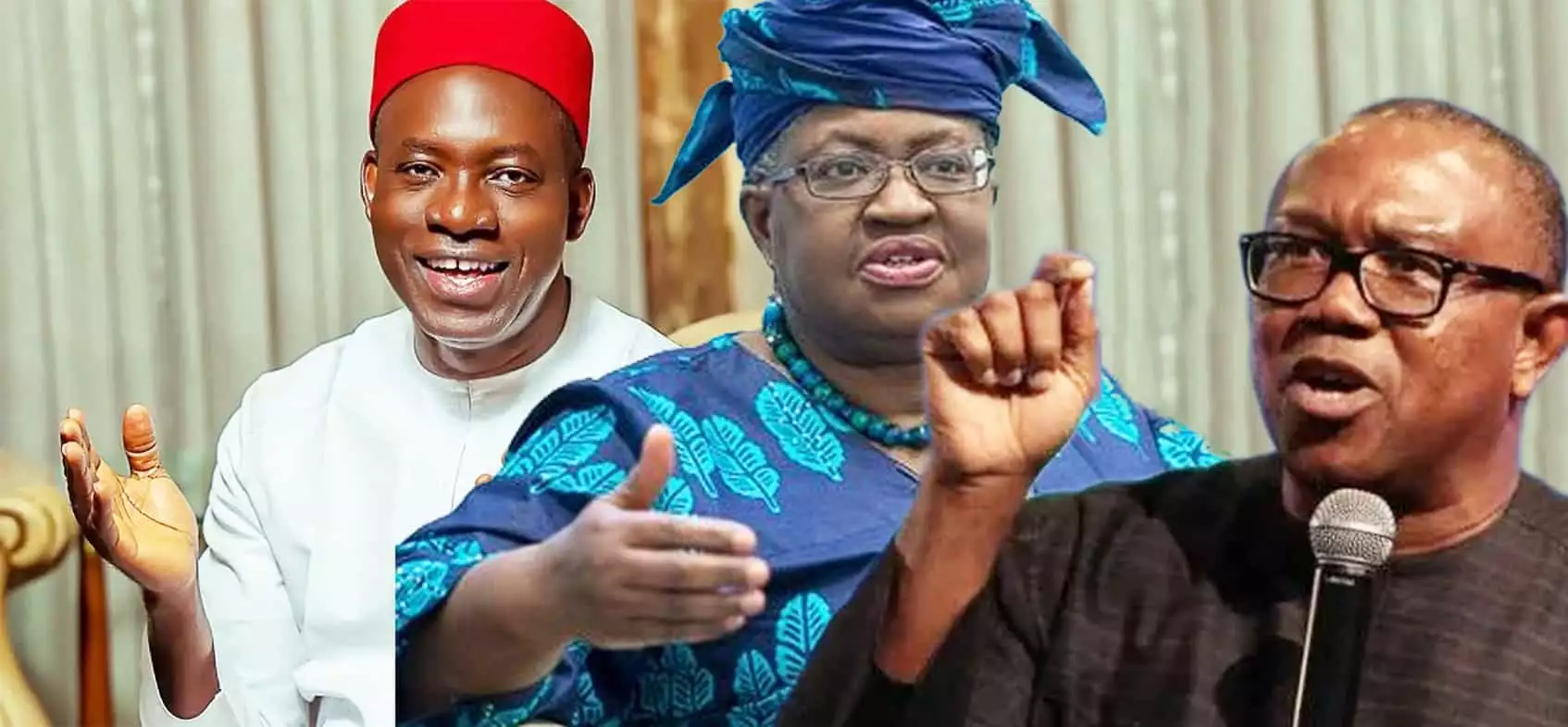The Minister, in a statement by her Special Adviser on Media, Paul Nwabuikwu, said Soludo singlehandedly mismanaged the banking sector between May 2004 and May 2009 and plunged the country into accumulation of liabilities that would cost tax payers about N5.67 trillion.
Soludo recently criticised management of the Nigerian economy under President Goodluck Jonathan, ranking the administration “F” on economic management.
Daily Trust reports that both Soludo and Okonjo-Iweala served under former president Obasanjo as members of his economic team.
Soludo said while Jonathan lacks achievements to point to, or clear future plans as he seeks re-election, his main challenger, the APC’s presidential candidate, Muhammadu Buhari, also lacks specific plans on how to salvage Nigeria’s economy should he win election’s next month.
But the finance minister said in her reaction that Soludo had pandered to so many past leaders “that Nigerians are asking one more time – what position is Soludo gunning for now?”.
“There is definitely an issue of character with Prof. Charles Soludo and his desperate search for power and relevance in Nigeria. Nigerians should therefore beware of so-called intellectuals without character and wisdom because this combination is fatal,” she added.
“In fact, the banking sector was brought to its knees and required a massive bailout by Nigerian tax payers. This bailout was done by his successor (Sanusi) who cleaned up all the bad debts and transferred them to the newly-established AMCON, from where they are managed today”, she said.
According to her, after consolidation, the regulatory functions of the Soludo-led CBN were very poorly exercised. As governor, she argued, Soludo failed to adequately supervise and regulate the now larger banks – an anomaly in financial sector supervision.
“In fact, as every Nigerian knows, in his time there was very little separation between the regulators and the regulated which is a violation of a key requirement of central banking success. This led to infractions in corporate governance in many banks as loans and other credit instruments running to hundreds of billions of naira were extended to clients without following due process, and several of these loans could not be paid back. This massive accumulation of bad debts or non-performing loans as they are called in the banking sector meant that our banks were ill-positioned to deal with the global financial crisis when it hit,” she added.
Dr Okonjo-Iweala is, currently, the Director General of the World Trade Organisation
Discover more from The Source
Subscribe to get the latest posts sent to your email.








